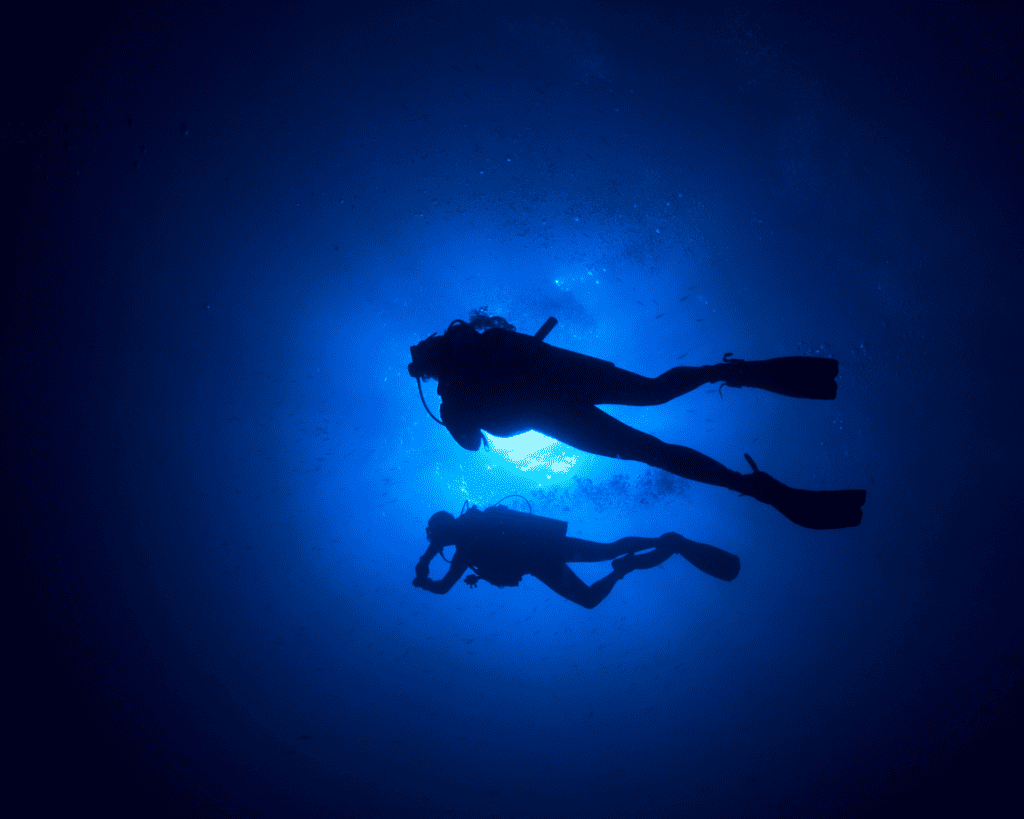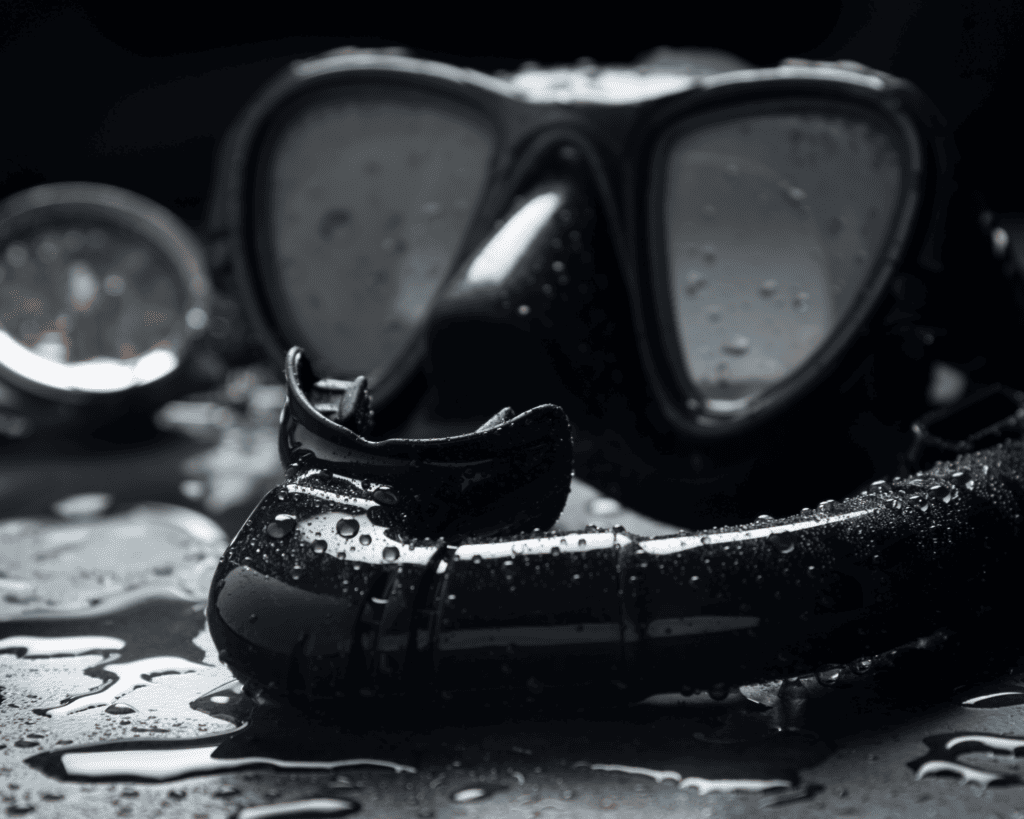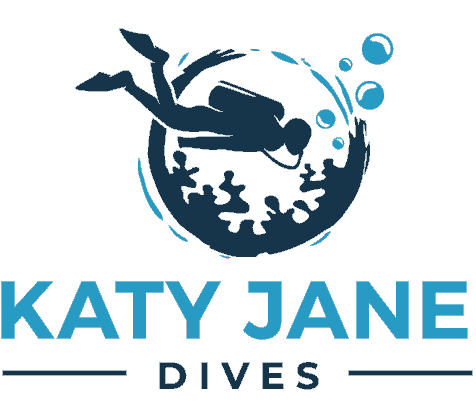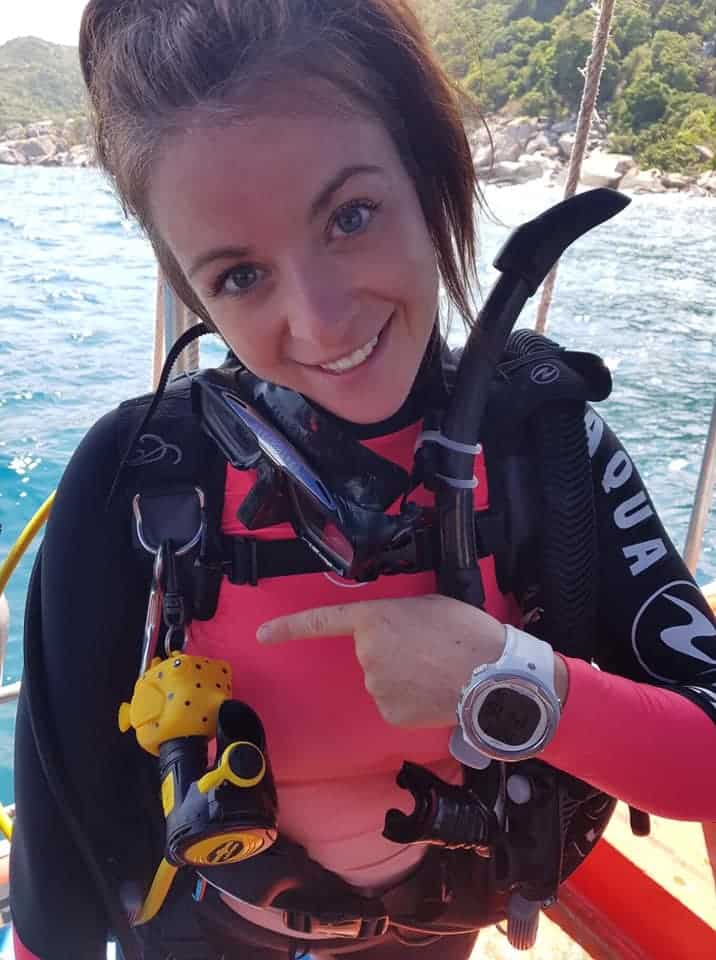Does scuba diving burn calories? Yes, but there are many factors…
According to research, scuba diving can burn approximately 400-700 calories per hour. This is due to the physical exertion required while diving, maintaining neutral buoyancy, breathing at depth, swimming against currents, and controlling your breathing.
The amount of calories burned can also depend on factors such as your level of fitness and ability to be calm and maintain neutral buoyancy.
Let’s take a deeper look at how many calories you burn with scuba diving and whether it’s an efficient way to lose weight.
Table of Contents
The Science Behind Calories Burned During Scuba Diving
Scuba diving is an exciting underwater activity enjoyed by many, but did you know that it can also burn a significant number of calories?
The number of calories burned during a dive depends on various factors like the diver’s level of fitness, the duration of the dive, and the depth of the dive.
While scuba diving may not be classified as a high-intensity workout, it is still a form of exercise that has many benefits, including improving cardiovascular health and building muscle strength and flexibility. So not only does scuba diving provide an opportunity for adventure and exploration, but it can also contribute to your overall fitness and well-being.
In this section, we’ll explore the science behind calories burned during scuba diving.
The Metabolic Equivalents (METs) of Scuba Diving
A metabolic equivalent (MET) is a measure of energy expenditure that compares the amount of energy burned during physical activity to the amount of energy used when at rest (basal metabolic rate).
Scuba diving METs range from 6.0-10.0 METs depending on the exertion level. Moderate scuba diving burns approximately 400-600 calories per hour, while a more strenuous dive can burn up to 700 calories in an hour.
Fast diving conditions such as 15.8 METs results in a full body workout, toning muscles and means to overcome water resistance means you are likely to burn more calories.
Factors Affecting Calories Burned

When it comes to burning calories while scuba diving, it’s not just about swimming around and exploring the underwater world.
Several factors can influence the number of calories burned during a dive.
These include:
Body Weight
The more a person weighs, the more calories they tend to burn during scuba diving. A 150-pound (68kg) diver will burn fewer calories than a 200-pound (90kg) diver during a dive of similar duration and intensity.
This is often the same for all types of exercise, when somebody has more bodyweight to carry it requires more energy. It’s the same for those who carry more muscle in the gym, they’re likely to burn more.
Water Temperature
Colder water temperatures require the body to work harder to stay warm, leading to more calories burned. Cold water directly affects your body temperature, which subsequently changes your core temperature and makes your body work harder to warm up.
Whenever you have to work harder to keep your body warm in significantly lower temperatures, it will ultimately be more energy consuming, that’s why a lower body heat is more taxing on the system.
You’re less likely to burn as many calories when diving in tropical waters which usually burns around 300 calories (the same as a brisk walk).
Currents
Diving against a current requires more exertion, leading to more burned calories. This goes without saying, the harder you’re made to work, the more energy you will use.
Dive time also comes into this, the longer you’re in the water, the more calories you burn.
Depth
Deeper dives require more energy, as the body adjusts to changes in pressure. It’s harder to breathe at depth and this means we exert more energy to keep the body functioning. This also ensures more air consumption.
Neutral buoyancy
Many divers find it difficult to maintain their buoyancy when diving so that they remain weightless. If you are diving with too much or too little weight, you will work much harder.
Dive Equipment
Your dive equipment can also require more effort, this often comes down to the weight of your scuba tanks and other equipment.
Albeit, it’s a small factor that won’t add many calories.
Benefits of Scuba Diving for Calorie Burning
Not only does scuba diving help you burn calories, it also provides numerous benefits to your health. It can improve cardiovascular and respiratory systems, help with muscle strength, and even reduce stress levels.
In conclusion, scuba diving is an enjoyable way to burn calories and maintain a healthy, active lifestyle. However, it’s important to remember that diving has inherent risks, and divers should always prioritize safety and take proper precautions.
The Bad News For Calorie Counters
Unfortunately, if you are looking for a sport that will give you the best chance of getting into shape, it isn’t scuba diving.
We aim to move slowly and be as relaxed as possible with minimal stress on our bodies. This gives us the best chance of having a longer dive as we use less air this way. We also increase the amount of nitrogen we absorb into our blood when we swim quickly and aren’t neutrally buoyant. This nitrogen is the cause of the dreaded decompression sickness.
Basically, the more experienced you are and the more you improve as a diver, the less you need to exert yourself when diving. This means you will usually burn fewer calories as you progress as a scuba diver.
It’s important to note that the number of calories burned during a scuba dive will vary depending on these factors and individual circumstances.
If you want to get in shape, then it’s a good idea to add strength training and start combining cardio to your routine, but I’d recommend not doing it close to any scuba diving you have scheduled, it’s key to leave hours between activities.
Is Scuba Diving a Good Workout?

Looking for a body workout, toning muscles and gaining good physical fitness? Scuba diving is certainly a sport that burns calories, but it’s not a form of exercise for an active workout. Scuba divers should be relaxed and fast diving should be avoided.
But a calorie burn is inevitable as is with any sport, movement or exercise. Find out how cardio and strength training for scuba divers can be conducive to a diver’s lifestyle.
Does Scuba Diving Increase Metabolism?
When diving in cold water, you will experience heat loss that will change your internal temperature. Being submerged in cold temperate waters means more calories burned and it’s likely to increase your metabolism.
Why am I So Hungry After Scuba Diving?
You may be hungry post dive and that’s because the time you would have been exercising without any calorie intake plus you would have burned calories.
Your body’s thermoregulation is also put under more stress due to time in the water. The weightless environment makes your body work harder.
Ensuring calorie consumption after a dive is key, be sure to replenish. Fuel consumption before a dive is important too, here’s what you should eat before diving.
Summary - How Many Calories Do You Burn Scuba Diving?
The average person burns between 400-600 calories per hour, but a strenuous dive can burn more. Repetitive diving is sure to help you lose weight if you’re not used to doing much exercise.
There are various factors that can intensify the calorie burn, with cold water temperature, the scuba tanks, depth and currents all affecting the increased energy demand.
With that said, you should not be getting into scuba diving as a weight loss program – it should be for the passion of marine life and love of diving. Diving isn’t an exercise modality for weight loss – it needs to be done in a relaxed state with rationale.

